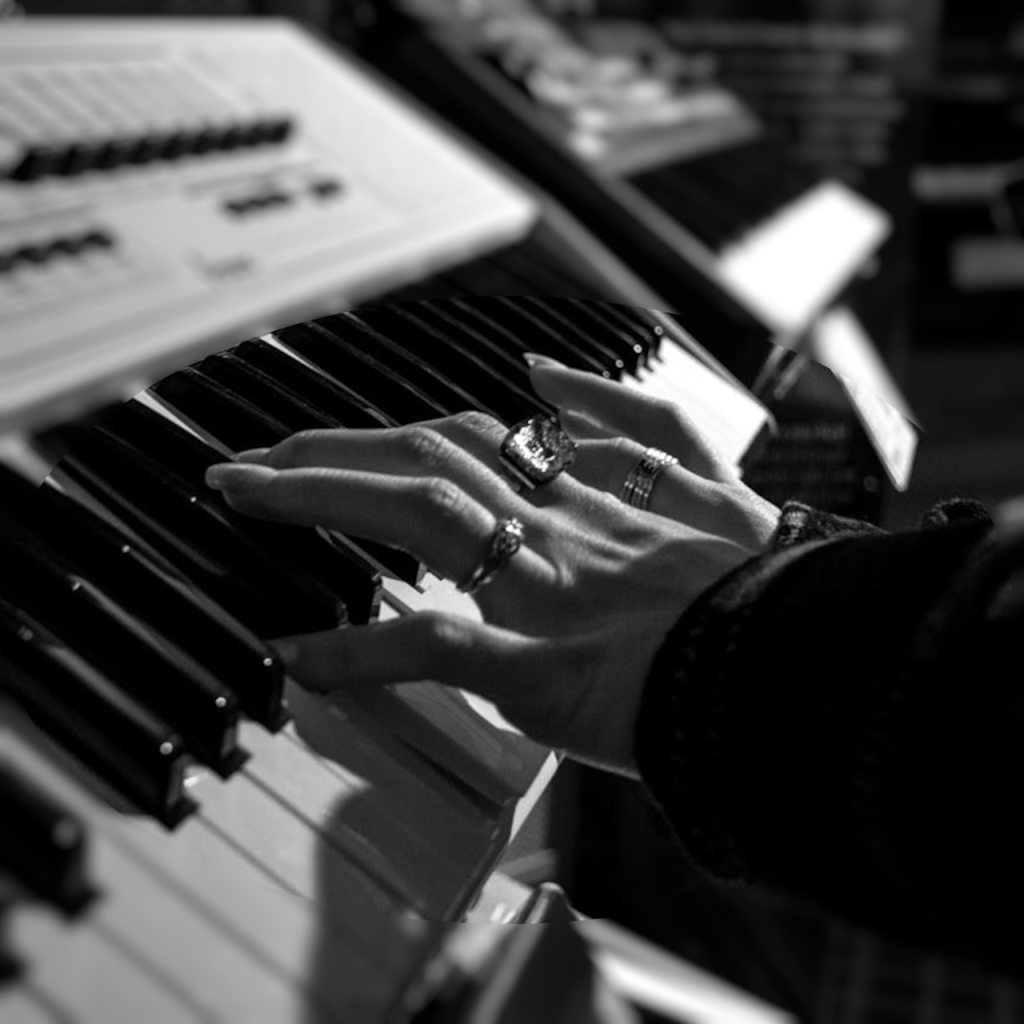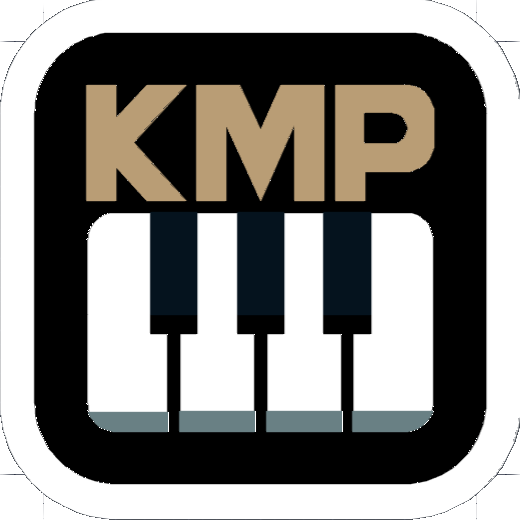I’ve played and taught on digital pianos with weighted keys for 50+ years. I love these instruments! Recently, digital pianos with weighted keys have become very popular. Sales have increased by 23% since 2020. This year, I’ve tested over 20 different models. I’m excited to share my findings with you in this comprehensive guide.
Fun fact: Did you know that digital piano sales jumped by 23% since 2020? It’s no wonder – these instruments have come such a long way in mimicking the feel of real acoustic pianos!
Understanding Weighted Key Action: Why It Matters
I started using digital pianos with weighted keys when I upgraded from a basic keyboard to a professional one. The change was amazing! These modern digital pianos have many benefits:
- The keys should feel heavier in the bass and lighter in the treble (just like an acoustic piano)
- When you press a key, it should push back against your finger naturally
- The keys shouldn’t feel “springy” or too plastic-like
- You should be able to play both soft and loud notes easily
Trust me on this one – if you’re serious about playing piano, weighted keys aren’t just a nice-to-have, they’re absolutely essential!

The Best Digital Pianos with Weighted Keys I’ve Tested
After extensive testing, here are my top recommendations for digital pianos with weighted keys:
Yamaha P-515
My go-to recommendation when students ask about premium digital pianos with weighted keys. The wooden keys feel very natural. The synthetic ivory keytops are easy to grip, even during long practice sessions.
Pros:
- Natural wooden key action
- Fantastic grand piano samples
- Great for both practice and performance
- Robust build quality
Cons:
- A bit pricey
- Heavy to move around
- Built-in speakers could be better
Roland FP-90X
This model stands out among digital pianos with weighted keys for its superior action and sound quality. I’ve used it for numerous performances with great results.
Pros:
- Superb key action
- Amazing sound quality
- Great for stage use
- Excellent built-in speakers
Cons:
- Expensive
- Complex menu system
- Heavy to transport
Kawai ES920
Now here’s a hidden gem! I recently discovered this model, and I’m impressed by how well it replicates the feel of an acoustic piano. The key action is slightly lighter than the Roland but still feels very authentic.
Pros:
- Realistic key action
- Beautiful piano sounds
- Great value for money
- Lightweight for its class
Cons:
- Limited sound options
- Basic recording features
- Screen could be larger
Sound Quality – What to Listen For
Having played these pianos in everything from quiet practice rooms to noisy music stores, here’s what I’ve learned to pay attention to:
- Listen for how notes “decay” (fade out) – cheaper pianos often cut off too quickly
- Play some soft passages – the best pianos capture subtle dynamics beautifully
- Try the sustain pedal – good pianos will let notes blend naturally
- Check how the piano sounds both with headphones and through its speakers
Features That Actually Matter
When choosing among digital pianos with weighted keys, prioritize these features:
- Key Feel
- Should feel substantial, not plastic-y
- Keys shouldn’t make loud clacking noises
- Should be able to play fast passages easily
- Sound Quality
- Clear, rich tone
- Good dynamic range
- Natural sustain and decay
- Practical Features
- Reliable Bluetooth connectivity
- Good headphone sound
- Easy recording options
- Sturdy music stand
Taking Care of Your Digital Piano
Keep your digital piano with weighted keys in perfect condition:
- Dust regularly with a soft cloth
- Keep away from direct sunlight
- Use a proper cover when not in use
- Clean the keys with a slightly damp cloth (never wet!)
- Have proper ventilation around the piano
Final Thoughts and Recommendations
After years of teaching and performing with digital pianos with weighted keys, here’s my advice:
For beginners, I’d recommend the Yamaha P-125 ($699) – it’s my go-to suggestion for students starting out. For intermediate players, the Kawai ES920 ($1,399) offers incredible value. And if you’re an advanced player or professional, the Roland FP-90X ($1,799) or Yamaha P-515 ($1,499) won’t disappoint.
The best digital pianos with weighted keys feel real and sound great. I’ve used many different models, but you should try them yourself to find the best one for you.
Looking for specific advice about digital pianos with weighted keys? Drop your questions in the comments below. I’m always happy to help fellow musicians find their ideal instrument!
*Prices and availability are accurate as of October 2024 and are subject to change.
Frequently Asked Questions About Digital Pianos with Weighted Keys
What’s the difference between semi-weighted and fully weighted keys?
Look, this is a question I get all the time from my students! Semi-weighted keys have a light spring mechanism and a bit of resistance, but they don’t truly replicate a piano’s feel. Fully weighted keys, on the other hand, use actual hammers (like in a real piano) to create authentic resistance. If you’re serious about learning piano, I always recommend fully weighted keys – they’ll help you develop proper finger strength and technique. There’s really no comparison when it comes to authentically replicating the piano experience!
How much should I expect to spend on a good digital piano with weighted keys?
Based on my experience testing dozens of models, here’s what you can expect:
– Entry-level (but still good quality): $500-800
– Mid-range with excellent features: $800-1,500
– Professional grade: $1,500-3,000
But here’s my honest advice – I’ve found that spending at least $700-800 gets you a significantly better instrument than the super budget options. The Yamaha P-45 ($550) is about the lowest I’d go while still getting decent weighted keys. Remember, this is an investment in your musical journey!
Can I learn proper piano technique on a digital piano with weighted keys?
Absolutely! I’ve taught hundreds of students who started on digital pianos, and many have gone on to become accomplished pianists. Here’s what matters most:
– The keys should have proper weight and resistance (like the models I recommended in the article)
– You need all 88 keys (no shortcuts here!)
– The piano should have good dynamic response (able to play both soft and loud)
Just make sure you’re getting a quality instrument with fully weighted keys, and you’ll be able to develop the same techniques as you would on an acoustic piano. I’ve even had students who switched to acoustic pianos later and had no trouble adapting because they learned on good digital instruments!
Need more specific advice? Feel free to comment with your particular situation, and I’ll help guide you to the right choice for your needs and budget. Remember, the best piano is the one that inspires you to practice and play more!


